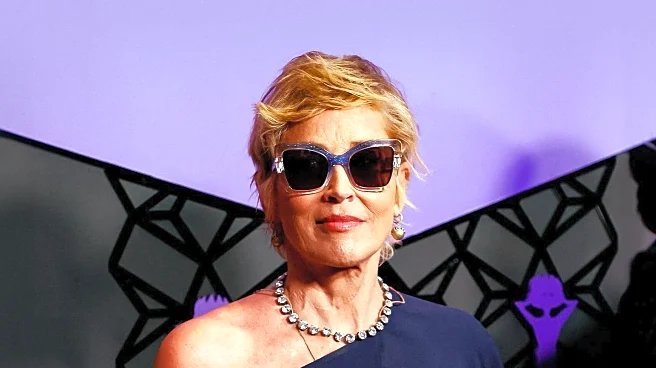What's Happening?
Nadja Swarovski, a member of the renowned Swarovski family, has been actively involved in philanthropy and sustainable fashion. She founded the Swarovski Foundation in 2013, aiming to promote sustainable livelihoods through education and support initiatives in equity, water, and creativity. The foundation has reached over two million people across 93 countries. Nadja stepped down from the family business in 2021 but remains committed to her ancestor's philanthropic legacy. She has launched Pegasus Private Capital, investing in sustainable products and female-led organizations. Nadja emphasizes the need for the fashion industry to adopt sustainable practices and questions the necessity of multiple collections per year.
Why It's Important?
Nadja Swarovski's focus on philanthropy and sustainability highlights the growing importance of ethical considerations in the fashion industry. As consumers become more environmentally conscious, brands are under pressure to adopt sustainable practices and reduce their environmental impact. Nadja's initiatives reflect a broader trend towards responsible business practices, which can enhance brand reputation and attract socially conscious consumers. Her emphasis on philanthropy also underscores the role of corporate social responsibility in building positive community relationships and driving meaningful change.
What's Next?
The fashion industry may see increased efforts to implement sustainable practices, driven by consumer demand and regulatory pressures. Brands could explore innovative solutions to reduce waste and improve supply chain transparency. Nadja's investments in sustainable products and female-led organizations may inspire other industry leaders to prioritize ethical considerations in their business strategies. Additionally, collaborations with charitable organizations could become more common, as brands seek to align themselves with social causes.
Beyond the Headlines
Nadja Swarovski's work highlights the intersection of luxury and sustainability, challenging traditional notions of opulence. As the industry evolves, brands must balance heritage with modern values, ensuring that luxury remains relevant in a changing world. Ethical considerations, such as fair labor practices and environmental stewardship, may become integral to brand identity, influencing consumer perceptions and purchasing decisions.











